The fear of a new crisis is forcing Europe to try to save the migration agreement with Turkey
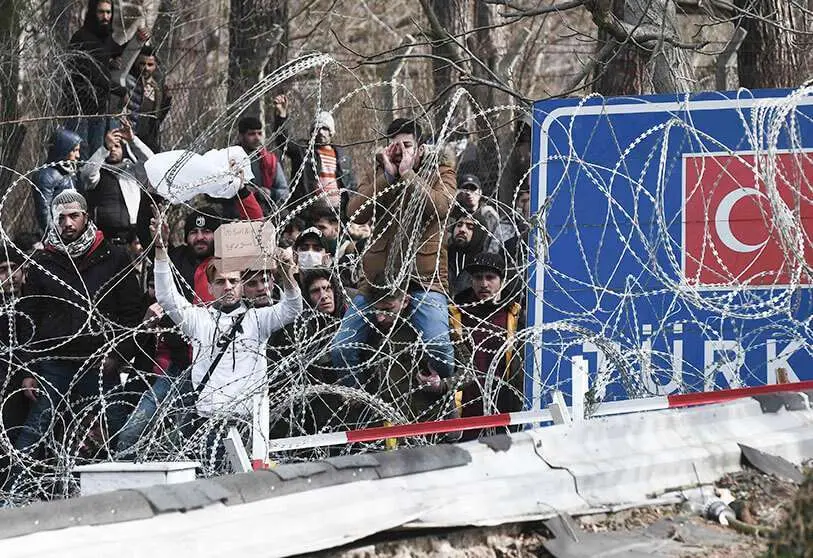
It was October 2015 when the then Vice-President of the European Commission, Frans Timmermans, declared that the challenge the European project faces today is "existential". The refugee crisis has brought this out. Just five years later the tragedy is repeating itself. The instability in the province of Idlib (northwest), the last rebel stronghold in Syria, has led thousands of people to flee the war with the only hope of finding a place in the world where they do not have to fight every day to survive.
Turkey's President Recep Tayyip Erdogan decided to open the borders last Saturday, arguing that the European Union had not fulfilled its promise to assist the 3.6 million Syrian refugees it is hosting. The Turkish leader explained that he had taken this decision because Turkey could no longer cope with the large number of migrants arriving in the country fleeing the war in Syria. Erdogan has opened his country's borders to coincide with the start of Operation Spring Shield, an operation promoted by Turkey against Bashar Al Assad's regime, in response to attacks by the Syrian army against Turkish forces deployed in the Idlib region.
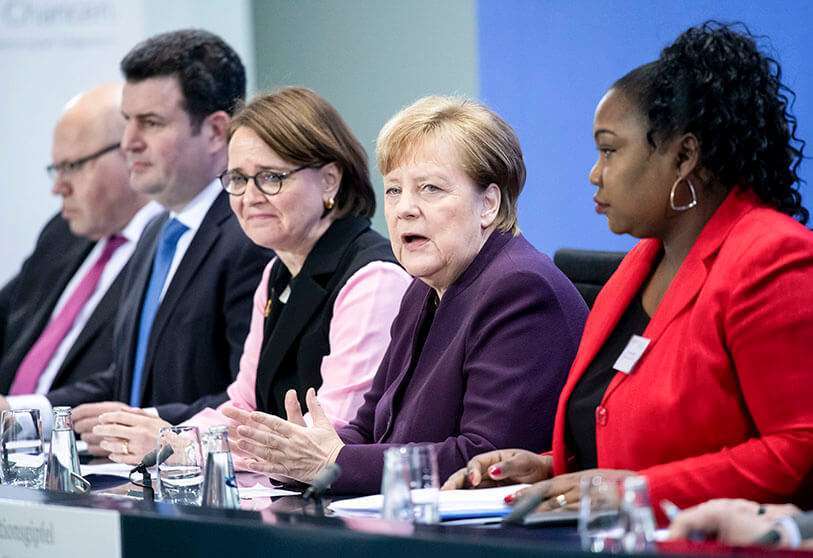
German Chancellor Angela Merkel has criticised Turkey's actions on the Greek border, saying it is “totally unacceptable” that Turkish President Recep Tayyip Erdogan is punishing migrants “for his own dissatisfaction with Europe”. However, Merkel has admitted that Ankara “currently does not feel sufficiently supported” by Europe.
Thousands of people have been forced to spend the night along the Turkish-Greek border, including hundreds of children, according to the staff of the International Organization for Migration. In addition, an increasing number of people are trapped in the limbo that is the border between Greece and Turkey. The IOM -- which works along the 212-kilometer border between the two countries -- observed last Saturday that at least 13,000 people were at the official border posts of Pazarkule and Ipsala. “The number of migrants moving through Edirne to the border grew throughout the day as cars, taxis and buses arrived from Istanbul”, said IOM's head of mission in Turkey, Lado Gvilava. Boat arrivals have also increased, causing camps to become overcrowded.
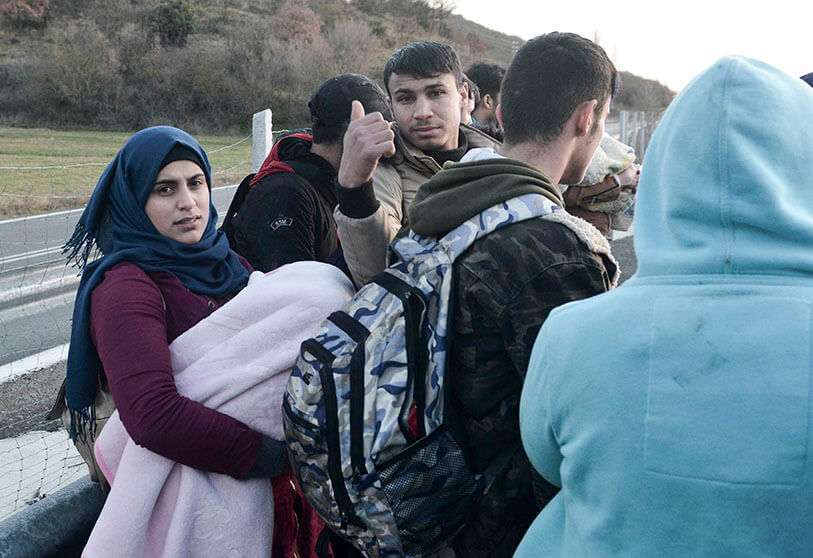
This situation is “unacceptable” according to Merkel, who considers that Erdogan is leading refugees to “a dead end”. German Foreign Minister Heiko Maas also spoke on this issue, insisting that “we must not allow refugees to become just another toy of geopolitical interests”.
In view of this situation, Erdogan called on Europe to assume its responsibility. “After we decided to open the doors, there were multiple calls saying 'close them'. My response was 'it's done. Now Europe will have to take its share of the burden”, Erdogan admitted during a televised speech.
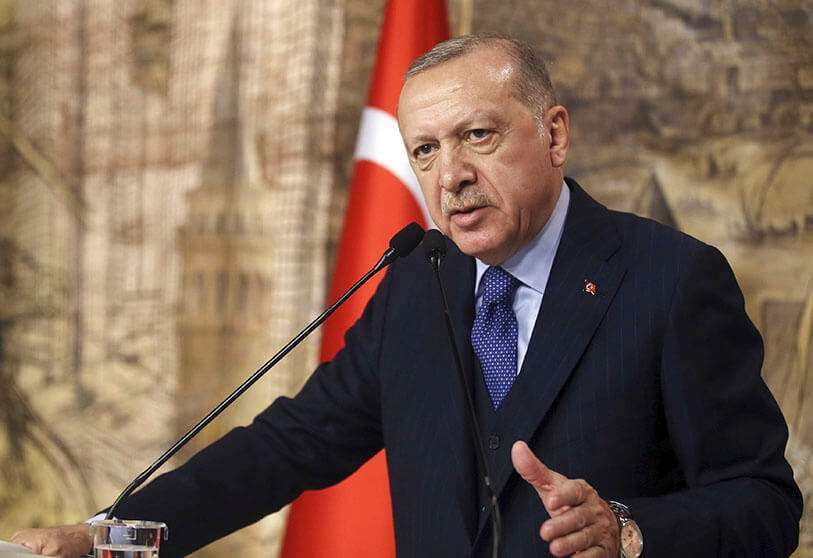
The situation in Syria and Erdogan's attitude have set off all the alarms in the European Union, which fears that the migration crisis of 2015, in which more than a million people crossed into Europe, will be repeated. In the last few hours, according to several local media, there have been more than 10,000 attempts to cross the northeastern border of Greece. Greek Prime Minister Kyriakos Mitsotakis has declared the level of alert in the country and has promised to intensify land and sea patrols to deal with the arrival of migrants.
European Commission President Ursula von der Leyen, European Council President Charles Michel and European Parliament President David Sassoli will travel to the Greek border on Tuesday. The EU Foreign Affairs Council has scheduled an “extraordinary” meeting this week also at Greece's request.
Greek Prime Minister Kyriakos Mitsotakis briefed US President Donald Trump on Tuesday on the threat posed to Greece by the arrival of hundreds of migrants and refugees from Turkey. At the same time, Washington has rejected Ankara's request for Patriot missiles to be used in its war against the Syrian Army, backed by Russia in Idlib.
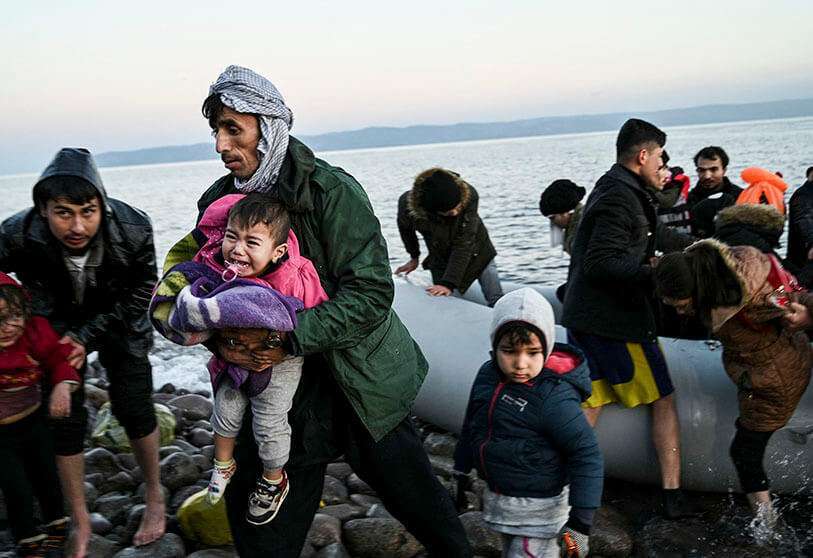
Greece asked the EU for immediate assistance in monitoring the country's eastern borders last Sunday; just one day later FRONTEX approved the deployment of its action force, known as RABIT. “The executive director of Frontex agreed today to launch a rapid border intervention to help Greece deal with the large number of migrants on its external borders. (...) It is part of Frontex's mandate to assist a Member State facing an exceptional situation by requesting urgent support with officials and equipment from all EU Member States and Schengen partner countries”, said Frontex Executive Director Fabrice Leggeri.
“We will be able to rely on the first 700 officers of the permanent corps of Border and Coast Guard in Europe from next year to provide operational flexibility in the event of a rapid intervention at the border. Today, we are totally dependent on the EU member states and the Schengen associated countries for contributions at this crucial time”, he added, as reported by the Greek daily To Vima.
Following the emergency meeting of the Greek government's Foreign and Defence Council (KYSEA), chaired by Prime Minister Kyriakos Mitsotakis - and attended by the ministers for foreign affairs, public order and defence, as well as the chairman of the joint general staff and the main military commanders - the government announced five measures to counter what it considers to be “asymmetric warfare”.
These measures include raising the surveillance of the country's eastern land and sea borders to the highest level. In addition, the Greek Government has proposed to temporarily suspend the submission of asylum claims by those who enter the country illegally. Thirdly, the Greek action protocol proposes an immediate return, whenever possible, to the country from which all persons entering Greece illegally originate.
“Denying asylum is not a solution. Refugees and all of those seeking asylum have a right to international protection and should be given assistance regardless of whether they are in Turkey or Europe. The European Union must take responsibility by stepping up its resettlement commitments and ensuring humanitarian aid can reach the most vulnerable. Now more than ever, leaders need to come together and agree on systems for responsibility sharing. Other, non-European Union countries could also show their support by offering to resettle more refugees”, said Save the Children’s European Migration Senior Advocacy Advisor Karen Mets.
“Children must have immediate access to protection and should not be pushed across borders like pawns in a political game. Border guards sent to the EU’s external borders should uphold fundamental rights, including the right to seek asylum”, he added.
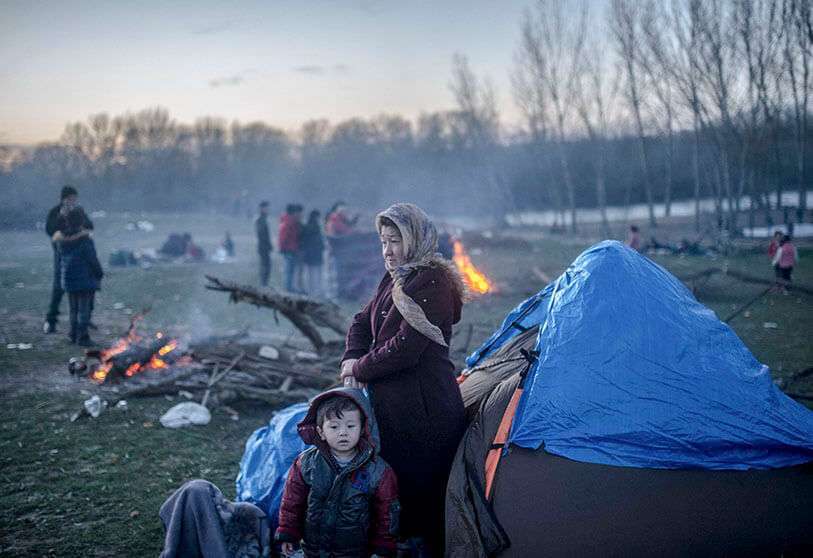
Amnesty International considers that “the inhumane measures which the Greek authorities are taking to prevent people from entering the country are an appalling betrayal of Greece’s human rights responsibilities and will put the lives of people fleeing violence at risk”. “Everyone has a right to seek asylum. Deporting people without due process could mean sending them back to the horrors of war or expose them to grave human rights violations, breaching the fundamental principle of non-refoulement,” said Eve Geddie, Director of Amnesty International’s European Institutions Office.
"The reckless measures being taken by the Greek authorities are a blatant breach of EU and international law that will put lives at risk. People seeking asylum are once again being used as bargaining chips in a callous political game”, she added.
Erdogan's decision to open the borders has raised the fear of a new migration crisis. Europe fears, once again, not being prepared to cope with the massive arrival of migrants. Meanwhile thousands and thousands of people flee their country every day with the illusion of finding a place in the world where there is no war.
At present, the challenge for Europe is to demonstrate its value as an entity and to allow the thousands of refugees on the Greek border to leave despair behind and give way to hope.








